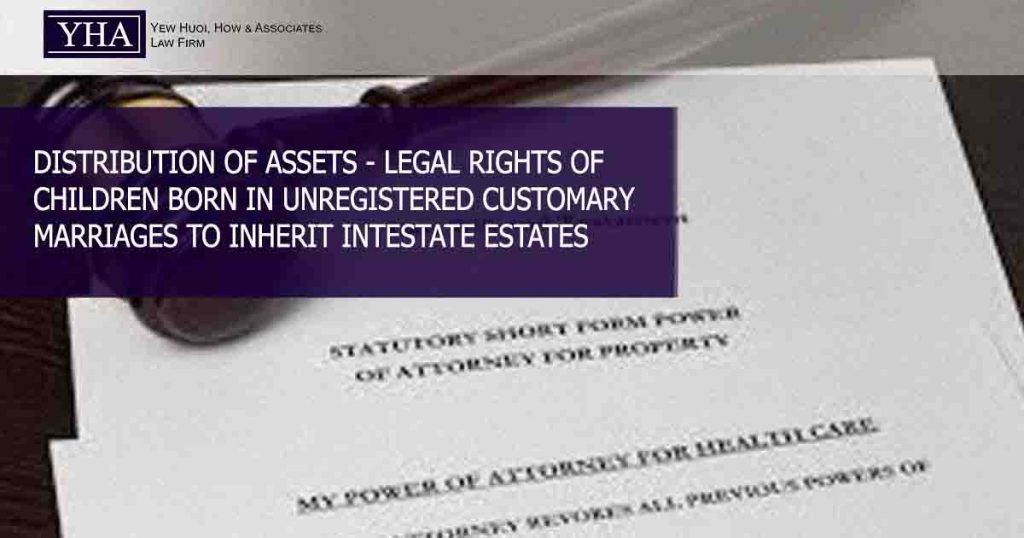1. Illustrative scenario:
X was born to parents who had a Chinese customary marriage that was not registered. When X’s father died intestate, he left behind his parents and cousins. X was told he was illegitimate because his parents’ marriage was not legally registered.
The key issue is whether a child born to parents in an unregistered Chinese customary marriage under the Law Reform (Marriage and Divorce) Act 1976 (‘the LRMDA’) can inherit from their father’s estate under the Distribution Act 1958 (‘the DA’).
2. Laws & Legal Principles:
- The DA 1958 governs the distribution of estates for individuals who die intestate (without a will).
- Section 6 of the DA 1958 outlines the order of succession for intestate estates.
- The definitions of ‘child’ and ‘issue’ are provided in Section 3 of the DA 1958: –
- ‘Child’ refers to a legitimate child, and in cases where the deceased was permitted multiple wives, it includes children from all such wives, but not adopted children (except under the Adoption Act 1952).
- ‘Issue’ includes children and descendants of deceased children.
- The term ‘issue’ indicates bloodline descendants, regardless of their legitimacy. Thus, anyone with a genetic or blood connection to the deceased is entitled to inherit.
- The DA 1958 does not limit inheritance to legitimate children only.
- Applying these principles to the scenario, X qualifies as ‘issue’ under the DA 1958. Therefore, he is entitled to inherit from his father’s estate despite any questions of legitimacy.
Reference Cases:
Tan Kah Fatt & Anor v. Tan Ying [2023] 2 MLJ 583

